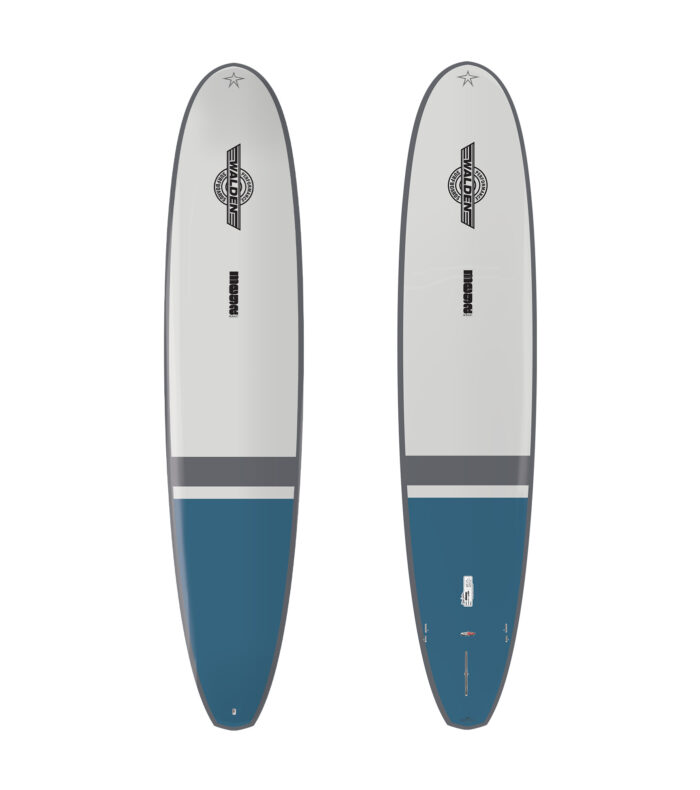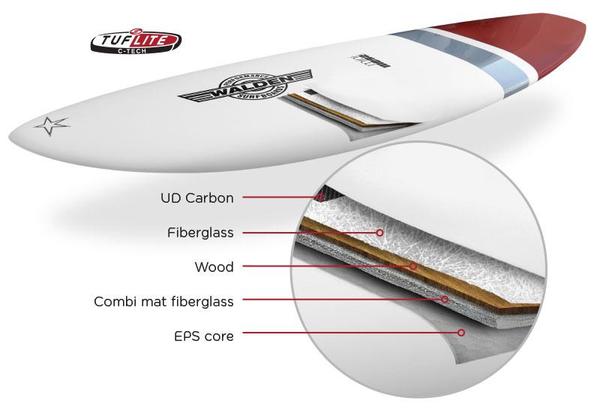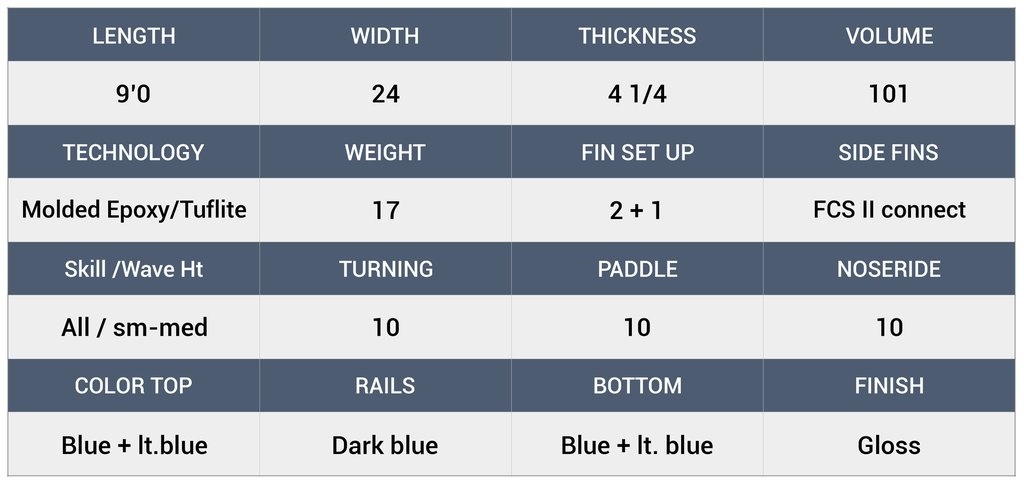Description
9’6 Walden Mega Magic – Tuflite C-Tech – Dark Blue – FCS II
The Walden Mega Magic surfboard packs plenty of volume and width into its length making it an absolute blast to surf. The Mega Magic is an all-time best seller and is the Walden model with the most condensed volume which allows the rider to drop in length without sacrificing the legendary ‘Magic’ model performance and float. Whist the volume distribution is different the Mega Magic still boasts the same magic ingredients of the original Magic model; Walden’s patented concave bottom, hard rails for manoeuvrability and performance and plenty of rocker to aid turning ability and comfort in more significant waves.
The Magic has always appealed to the larger rider and we’re pleased to say the Mega Magic will offer the bigger guys and girls the opportunity to ride a board a foot or so shorter while still maintaining that all important buoyancy of the original Magic.
The MEGA MAGIC will float like a board that is 12″-18″ longer. For the surfer that normally rides a 10′. With the Mega, he can ride this 9’0″ without giving up float or stability.
Walden surfboards come without fins and fin screws. The centre fin box is best suited for ROAM longboard fins, FCS screw and plate longboard fins and Futures longboard fins.
Brand
Walden Surfboards
THE FATHER OF THE MODERN LONGBOARD
Steve Walden is recognized throughout the surfing industry as "The Father of the Modern Longboard." There is no doubt that his contributions to the evolution of the original modern longboard have been profound. An accomplished professional surfer, Walden grew up in the heart of the surfing revolution on the beaches of Southern California, shaping personal boards for he and his friends for 40 years.
BIRTH OF THE MAGIC MODEL
1981 found Walden back in Southern California, where his designing took on even more radical changes. In 1983 he worked with Al Merrick at Channel Islands (one of the premier shortboard manufacturers at that time). His development of the longboard continued, and he more highly refined the rails, curve, and hull design for a greater degree of cutting-edge performance. These elements were combined into one primary design, giving birth to his famous "Magic Model." This board went on to become the industry standard for modern longboards.
SURFING EXCELLENCE
Walden currently operates a surfboard manufacturing facility in Ventura, California. He continues to actively compete in professional competitive surfing, and in fact holds the longest recorded nose ride in competition history. He attributes this feat to the excellence of his nose-riding design. His most recent industry precedent is a longboard designed specifically for the female surfer.
Heeft u hulp nodig bij uw aankoop? Neem dan gerust contact met ons op
+3170 201 5153
info@noordzeeboardstore.nl
Contact formulier





